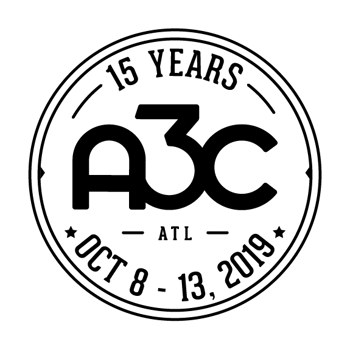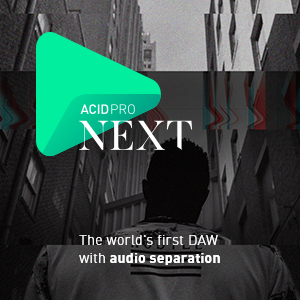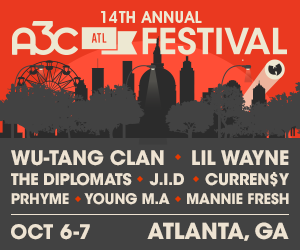 As wonderful and validating as a publishing deal seems, artists may not benefit from the deal as much as they think in the long run.
As wonderful and validating as a publishing deal seems, artists may not benefit from the deal as much as they think in the long run.
Once artists are in the deal, it’s hard to get out. Once an artist is signed to a pub deal, they are signed for a number of years or for a number of songs. Not saying that all pub deals are bad, but artists must weigh out their options before signing a part of their music away.
Publishing is one of the harder subjects to understand in the music business, here is a quick overview of how it works.
Upon signing a publishing deal, artists sign over a piece of their song(s) in exchange for the publisher’s exploitation of their songs. The publisher essentially collects a fixed percentage of the royalties that an artist makes off of each song that is under the pub deal.
A publisher’s job is to get the songs placement, to record the song’s plays and to collect the performance royalties. Performance royalties come from wherever the song is played in public. This can mean on the radio, streaming services or even in restaurants and hotels.
There are a few pros to signing a pub deal, one being that the artists do not have to record and collect all of their royalties themselves. The publishers collect the royalties, take their percentage and send the artist a cumulative check.
A publisher can also help get the artist placements in movies, TV commercials and other outlets that the artist may not know how to get into. Publishing companies have good relationships with labels and are able to pitch songs to many different outlets that artists may not have direct access to.
Also, upon signing a pub deal artists are able to get monetary advances. This advance can help the artist get by until their music starts making money. This money can also help with studio and recording costs that the songwriter may need in order to continue producing music.
Before signing any kind of pub deal, it is necessary for artists to hire an entertainment lawyer to look over and explain any paperwork. A good lawyer makes all the difference for artists when it comes to any kind of binding contracts.
Different Types of Pub Deals
There are a few different types of pub deals that artists can sign.
The first type of deal is a full publishing deal. In a full pub deal the royalties of the music is split 50/50, so when the money comes in the artist takes half and so does the publishing company.
Another type of pub deal, one of the most common, is a co-publishing deal. With a co-pub deal, 50 percent royalties go to the artist and 50 percent go to the publisher. Then, 25 percent of the publisher’s royalties back to the artist’s publishing company (which they create). This basically means that the songwriter gets 50 percent of the total royalties plus 50 percent of the publisher’s royalties. The 50 percent that they receive from the publisher’s share goes to the artist’s own publishing company on the back end. A co-pub deal is not a bad deal to have because the artist has a larger portion of ownership of the song than the publisher does.
The third type of pub deal is an administrative deal. In an admin deal, the songwriter retains full ownership of his or her songs. The publishing company serves as an admin by collecting royalties, while dealing with PRO and copyright registrations. They do collect a percentage, of course, from royalties, but they do not hold ownership of the music.
The next deal is simply a single song deal. The songwriter will share the rights with the publishing company, but only for that one song.
Publishing Splits
When an artist is sending music to their publisher, they have to send in publishing splits. Publishing splits can be decided on after the song is produced to make sure everyone that worked on the song gets their fair share of the royalties.
Normally the song’s ownership is split 50/50. Fifty percent of the ownership goes to the producer, and 50 percent goes to the songwriter. In cases where there is more than one producer or songwriter, the song is split equally within their 50 percent share or however the creators of the song decide to split it.
Publishing splits DO NOT include the performer of the song unless the performer is also the songwriter. The royalties the performer receives from the song are based off of sales (mechanical royalties), but not from performance royalties. The only exceptions in this case are songs by superstars such as Beyoncé or Rihanna. Performers that are on their level are able to require a percentage of the publishing, just because.
Cons of Pub Deals
Although pub deals sound great at first and the advance is good, it may not be worth the artists signing away their rights to their own music. As songwriters or producers get popular, their songs kind of become their own entity. It could just be a matter of working with the right artists and having a good fan base that will get the song placements, not exploitation from the publishing company.
Before signing to a publishing company, artists also must consider that they may not be a top priority at the company. Their songs are among hundreds of songs in the library and the publisher may be pushing them, but it’s possible that they’ll be placed on the backburner.
Most artists, with the right platform, can do it on their own. After signing a pub deal, the artist is required to stay a number of years or to make a number of songs with the publishing company. If the music is doing well on its own, the publishing company will still be collecting their royalties whether they helped with the its success or not.
Other Options: PROs
Performance Rights Organizations, also known as PROs, are the good guys, the ones songwriters need to be friends with. PROs are non-profit organizations that collect the songwriter/producer’s royalties on their behalf. EVERY songwriter or producer should be signed to one of these organizations.
There are three options that artists have, BMI, ASCAP, and SESAC. Regardless of which organization the artist chooses, they all function the same. They collect performance royalties from radio, streaming services and other public performances of the song. This service is FREE for the artist.
Before signing any papers for a publishing deal, songwriters/producers have to look at their different options. Pub deals aren’t all bad, sometimes they work in artist’s favor. The advances that these publishing companies give are unbelievable and many times songwriters sign in order to pay the bills until the money comes in. Songwriters and producers have to weigh out their options, pick their poison and hopefully they make the right choice.



